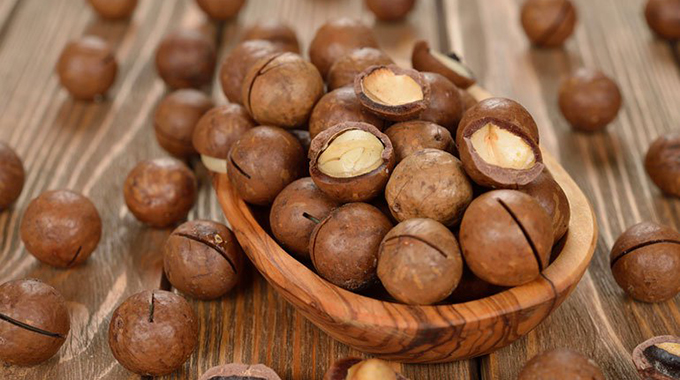
Takunda Maodza Manicaland Bureau Chief
MACADAMIA nuts farmers expect the poorest harvest ever this year owing to the side effects of climate change, which resulted in reduced rains and heat waves.
Heat waves were experienced mainly between August and November last year, resulting in massive fruit abortion (fruit drops).
In Zimbabwe, macadamia nuts are grown mainly in Chipinge and Chimanimani districts in Manicaland Province.
Honde Valley has also joined macadamia nuts production, a lucrative business with potential to earn the country millions in foreign currency.
Macadamia nuts are high in healthy fats and are used to lessen the risk of heart-disease, improve metabolic syndrome and diabetes and also prevent cancer.
In an interview with The Herald on Tuesday, Macadamia Association of Zimbabwe (MAZ) secretary-general Mr James Maisiri said the situation was not looking good.
“We expect the poorest harvest ever since we started macadamia farming (around 2010 for indigenous farmers) caused by heat waves experienced during the time of flowering from August to November last year,” he said.
“We have seen fruit drops or abortion caused by shortages of rains and excess heat. These were the major causes. We have not received normal rains.”
The fruit drops ended in December when the country started receiving decent rains.
About 95 percent of macadamia farmers in Zimbabwe depend on rains as they lack capacity to invest in irrigation.
“We made an assessment recently and discovered that we are facing the poorest harvest ever,” said Mr Maisiri.
“We have never experienced such low yields since we joined the macadamia production industry around 2010.
“Farmers without irrigation were expecting at least 2 to 3 tonnes per hectare. Those with irrigation expect 5 tonnes per hectare.”
Macadamia nuts earn between US$2,20 to $2,80 per kilogramme and the industry is a potential serious foreign currency earner if well managed.
Mr Maisiri bemoaned the negative impact of climate change on macadamia production in Zimbabwe.
“These (reduced yields) are the effects of climate change,” he said.
“Irrigation is the solution. We also have to procure modern chemicals. For example, in South Africa macadamia farmers have access to modern chemicals like coolant to cool down the heat waves. Such chemicals are very expensive, but very effective.”
South Africa is the world’s largest producer of macadamia nuts, harvesting 50 000 tonnes annually and earning R3,2 billion worth of exports to the US, Europe and Asia.
Macadamia farmers in Zimbabwe last season produced 8 000 tonnes.
The farmers have not received any support even though macadamia were recognised by the Reserve Bank of Zimbabwe as a major foreign currency earner.
Some of the farmers are getting financial support from buyers who are mainly foreign companies, but the arrangement is not so rosy.
The companies buy macadamia nuts for an average US$2,50 per kg and sell them abroad at between US$16 and $20 per kg.
